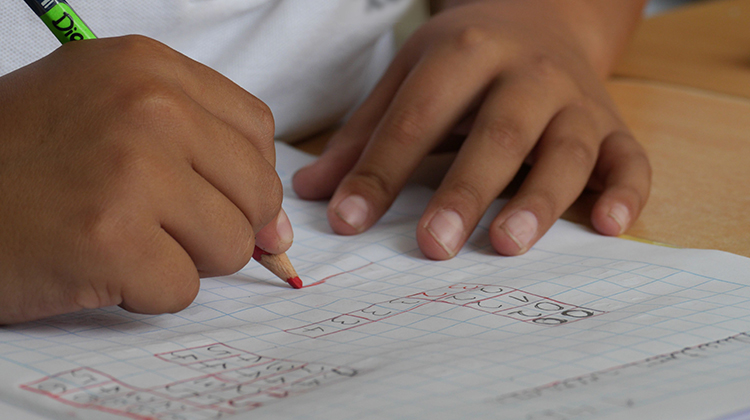Maths, Motivation, Brain Maps, the Mind and Merit (Part 1)

The media has been reporting for some time that the skills and knowledge of Australian students in mathematics are not advancing. In May of 2022, the University of South Australia stated: “The numbers don’t lie: Australia is failing at maths and we need to find a new formula to arrest the decline. Divide, subtract, add, multiply: whatever way you cut it, Australia is heading in one direction when it comes to global maths rankings - downwards.”
Complex
This is an extremely complex educational, social and pedagogical problem. One consideration is to put in place a wide range of interventions, from Prep through to Year 12. Of course, none of this is easy. However, as the ancient adage declares: all journeys begin with the first step. This first step may not be the answer, but it could be considered as being one step towards a pathway of potential considerations.
Motivation
In terms of learning, William Glasser declares it is an individual’s motivation and personal attitude that have the most influence over what any individual will do and achieve. Glasser found that unless a student is personally motivated to behave and learn, there really is very little anyone else can do except support, encourage and offer ongoing advice. Ultimately, as Glasser notes: “We can force…students to stay in school…but we can no more make those students work than we can make the proverbial horse drink even though we tether him to the water trough.”
How?
In broad general urban myth-based education terms, there is a social point of view that students do not enjoy or appreciate maths. If they did, results would not be at the lower end of the mathematical education spectrum. Speaking generally again, anyone who enjoys something usually excels at the discipline in question. So, the question that must be asked: “How do we change (speaking in general terms of course) the oft-stated mantra of “I hate maths,” to a genuine and enthusiastic self-directed self-talk of “I love maths” declaration, that is enthusiastically announced by students, on a daily basis?
Maths Mantra
There are no easy or quick-fix answers to this dilemma. This is the question that has remained with me since I began teaching many years ago. This concern remained with me until one day, again, after many years of teaching, and as a result of an unexpected set of circumstances, I eventually heard the words “I love maths,” being cheerfully expressed; not only by one student but in fact by a collective chorus of students. This positive maths mantra was being expressed on a daily basis, to the point where this “I love maths” mantra took on a life of its own, as a result of what was being achieved in the classroom.
Serendipitous Situation
This “I love maths,” situation arose as a result of a serendipitous situation when I became a permanent local relief teacher, and/or an emergency teacher. This relieving emergency teacher position provided me with the opportunity and the pedagogical means to attend different classes. The purpose of this position was to release the classroom teachers from their teaching duties for their non-contact time. During this time, in addition to all of the other grades, I was also relieving a number of Prep and Grade One teachers. When I went to the Prep and Grade One classrooms, the teachers asked me if I would like to work on improving the numeracy skills of the children in these classes. I said that this would not be a problem. I would be delighted to do so.
Consultation
In consultation with the teachers, I enquired if they would be happy for me to apply a particular form of brain-based sequence learning and chunking numeracy teaching methodology I had in mind. I told the teachers that this methodology was based on my years of teaching, my brain-based educational and pedagogical research, and the success I achieved during the teaching and training that took place in the traditional martial art of Goju Karate. I was asked if I would be teaching karate. I replied not all. In fact, I would not even be mentioning the word karate. I would simply be utilising the sequencing learning and the hierarchical teaching method and the success it achieved. Added to this I informed the teachers my research was connected to my studies, which included three Masters’ degrees, my physical education and psychology degrees, as well as postgraduate awards in the sports sciences, teaching, and neuroscience studies.
More next week.
Dr Ragnar Purje (PhD; M.Ed.; M.Ed.(Guid.&Couns.); M.Ed.(Lead.&Man.); B.A.(Psych.); B.App.Sc.(P.E.); Grad.Dip.Ed.; Grad.Dip.Sp.Sc.; Grad.Dip.Ex.Sp.Sc.; Grad.Cert.(Comm.); Grad.Dip.(Health Couns.); Cert.IV in Assess.&Workplace Training) is an Adjunct Senior Lecturer at CQUniversity in the School of Education and the Arts. Dr Purje works with Professor Ken Purnell specialising in classroom behaviour management strategies. Dr Purje is the author of Responsibility Theory.® For presentations, Dr Purje is represented by Saxton Speakers Bureau.